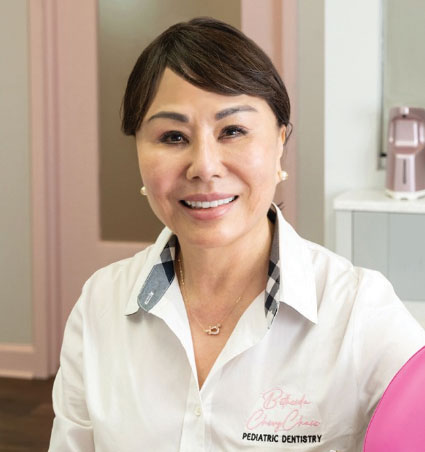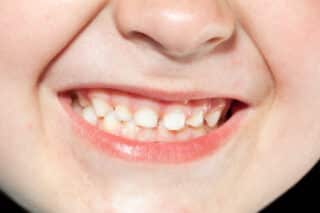
Bethesda Chevy Chase Pediatric Dentistry
4825 Bethesda Avenue
Suite #220
Bethesda, MD 20814

More Dental Health Articles
Navigating Natural Herbal Replacements For Fluoride In Caries Prevention

The dental health community continually evolves its approach to preventing dental caries, especially among vulnerable groups like children and young adults. In recent years, the American Dental Association (ADA) has acknowledged a growing interest in natural and herbal alternatives to fluoride in toothpaste and rinses. This article explores the burgeoning field of herbal replacements, underpinned by recent studies and recommendations from the ADA, to provide a comprehensive overview of how these alternatives are reshaping caries prevention.
The Shift Towards Herbal Alternatives
Fluoride’s efficacy in preventing dental caries is well-documented. However, concerns over dental fluorosis and a general trend towards natural healthcare have led many to seek herbal alternatives. These alternatives not only promise caries prevention but also resonate with the broader preference for organic and naturally sourced products. The ADA, recognizing this shift, has initiated and reviewed various studies to understand the potential and efficacy of these natural alternatives.
Why the Emphasis On Natural and Herbal Replacements?
The rationale for exploring natural and herbal replacements is twofold. Firstly, there’s an increasing demand for holistic health approaches that align with an individual’s lifestyle and ethical choices. Secondly, while fluoride is effective, its overuse, especially in children, can lead to fluorosis, a condition that affects the appearance of developing teeth. As such, finding a balance between effective caries prevention and maintaining natural oral health has become a priority for many.
Herbal Replacements
Under ADA Scrutiny
Several natural substances have come under the spotlight, with research often backed or reviewed by the ADA to ensure their efficacy and safety. Here are some notable mentions:
Hydroxyapatite (nano-HA): Although not an herb, nano-HA is a naturally occurring mineral that mimics the composition of tooth enamel. Recent studies have indicated its potential in remineralizing enamel and protecting against decay, with some research suggesting it could be as effective as fluoride.
Xylitol: Derived from birch trees and other natural sources, xylitol is a sugar alcohol that’s been studied extensively for its ability to reduce harmful oral bacteria. The ADA has reported on various studies highlighting its cavity-preventing properties, especially when used in chewing gum.
Neem: With a long history in traditional medicine, neem has antibacterial properties that make it a candidate for oral health care. Preliminary studies have looked into its effectiveness in reducing plaque and gingivitis, key factors in preventing caries.
Green Tea Extracts: Catechins in green tea have been shown to possess antibacterial and anti-inflammatory properties. Some ADA-reviewed studies suggest that green tea extracts in mouthwashes and toothpaste could help in reducing bacteria and improving overall oral health.
Licorice Root: Licorice has been identified for its antimicrobial properties against oral pathogens. While research is still in the early stages, some findings suggest it could be beneficial in reducing bacteria and preventing caries.
The ADA’s Position
and Ongoing Research
The ADA remains committed to evidence-based dentistry and has thus approached the topic of herbal replacements with a rigorous scientific perspective. While it recognizes the potential of these natural alternatives, it also emphasizes the need for more extensive and long-term studies to fully understand their benefits and limitations.
Ongoing research, much of it reviewed or conducted under the auspices of the ADA, is focused on not just proving the efficacy of these substances but also understanding their appropriate usage, side effects, and interactions with other dental care products.
The exploration of herbal and natural replacements for fluoride is an exciting and growing field, reflecting a broader shift towards personalized and holistic health care. While these alternatives show promise, the ADA and the wider dental community advocate for a cautious and informed approach. As research continues to unveil the potential of these natural substances, it’s crucial for individuals, especially those responsible for the care of children and young adults, to stay informed and consult with dental professionals. The future of caries prevention is likely to be more diverse, with a blend of traditional and innovative approaches working hand in hand for optimal oral health.
Other Articles You May Find of Interest...
- Root Canal Treatment and Its Cost in Mumbai
- Stronger Smile, Brighter Future: Exploring Dental Implants
- How Dental Technology Benefits You
- Advantages Of Dental Implants
- MORE POWER. MORE CONVENIENCE. MORE CAPABILITIES. iTero Element™ 2 Intraoral Scanner
- Goodbye Goopy Impressions: Perfect Fit: iTero™ for Sleep & TMJ Appliances!
- Managing Pain After Periodontal and Implant Surgeries: A Guide to Optimal Recovery

















